Politics and Government: Organizations and Institutions
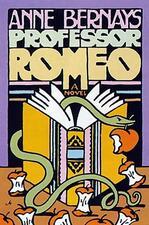
Anne Fleischman Bernays
Anne Fleischman Bernays is an American editor, novelist, and nonfiction writer. Her literary work is notable for its exploration of Jewish experiences of America, the pressure of assimilation, and the then-taboo subject of sexual harassment.
Dorothy Lehman Bernhard
Rebecca Thurman Bernstein
Rebecca Thurman Bernstein was lauded by local and national organizations for her efforts to improve health care, literacy, and Jewish life in Portland, Maine. Bernstein was proud of her Jewish heritage and worked for many Jewish causes, but her interests were not limited to or by her Jewishness.
Meta Pollak Bettman
Meta Pollak Bettman was an untiring volunteer in Jewish and civic causes in the early twentieth century.
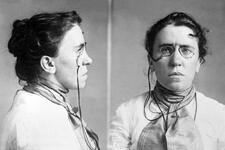
Birth Control Movement in the United States: 1912-1960

Sara Blakely

Florence Meyer Blumenthal
Florence Meyer Blumenthal, an extraordinary philanthropist and arts patron, organized her own arts foundation in Paris, and donated millions of dollars to established institutions and public charities in America and France. Blumenthal’s foundation funded hundreds of promising artists and allowed them to focus on pursuing their craft.

Heather Booth
Madeleine Borg
Madeleine Borg, a juvenile rights advocate, is known for reframing juvenile rehabilitation efforts in both Jewish and non-Jewish communities. Borg founded the American Big Sisters movement in 1912 and went on to establish the Council Home for Jewish Girls.
Anna Pavitt Boudin
A dentist by career, Anna Pavitt Boudin is remembered for her prominent role in the American’s Women ORT. While maintaining her own private dental practice, Boudin became the founding president of Women’s American ORT, an organization that grew to be one of the largest Jewish women’s organizations in the United States.
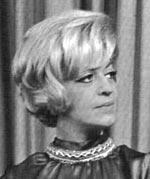
Brazil, Contemporary
Brazil is home to the second largest Jewish community in South America. Jewish women played important roles in the absorption of Jewish immigrants from Europe, the Middle East, and North Africa, and also made important contributions to Brazilian intellectual and artistic life.
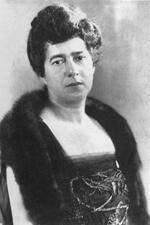
Rose Brenner
As president of the National Council of Jewish Women, Rose Brenner focused on inclusion of people who were often marginalized—the deaf, the blind, and those isolated in rural areas.
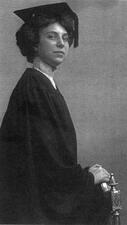
Jeanette Goodman Brill

Fanny Fligelman Brin
A riveting public speaker, masterful politician, skilled organizer, and administrator, Fanny Fligelman Brin, who served two terms as president of the National Council of Jewish Women, from 1932 to 1938, is best remembered for her work on behalf of world peace during the interwar years.
Britain: Nineteenth and Twentieth Centuries
Since being allowed to resettle in 1656, Jews in Great Britain have established deep community ties throughout their diverse community. Class differences between early Sephardic settlers and the later wave of Ashkenazi immigrants gave rise to numerous Jewish charitable organizations, in which women played a key role.

Saidye Rosner Bronfman
Saidye Rosner Bronfman was a first-generation Canadian who used her wealth to benefit numerous Canadian Jewish organizations and philanthropies. Beginning in 1929, she served as the president of Montreal’s Young Women’s Hebrew Association for six years. In 1943 she was recognized by the British Empire for her philanthropic contributions to the war effort.
Shifra Bronznick
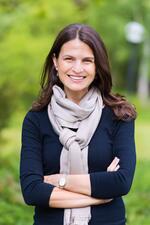
Sharon Brous
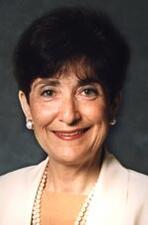
Sandra Brown
Sandra (Sandy) Brown, an outstanding leader of the Toronto Jewish community at the turn of the twenty-first century, is one of the most influential and effective leaders of Toronto Jewry, highly regarded as a person of extraordinarily broad experience, unfailing fairness and commitment, and unusually deep knowledge of education.
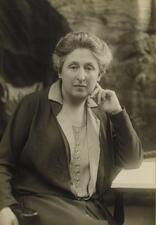
Cécile Brunschvicg
Cécile Brunschvicg was one of the grandes dames of French feminism during the first half of the twentieth century. Although her chief demand was women’s suffrage, she also focused on a range of practical reforms, including greater parity in women’s salaries, expanded educational opportunities for women, and the drive to reform the French civil code, which treated married women as if they were minors.
Emilie M. Bullowa
As a lawyer and activist, Emilie M. Bullowa devoted her life to justice for the disenfranchised. Her colleagues, as well as many judges, respected her attitude as a woman in a field then dominated by men: She took pride in being a lawyer, rather than in being a female lawyer.
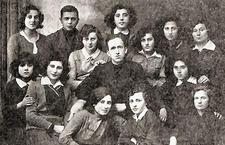
Women in the Bund
Jewish women played leading roles in the formative years of the General Jewish Workers’ Bund, which was established in the Tsarist Empire in 1897, and initially participated in the movement in large numbers. However, the Bund had somewhat less success in mobilizing women in independent Poland between the two world wars than it had during the Tsarist era.
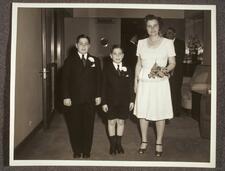
Helen Lehman Buttenwieser
As a lawyer, Helen Lehman Buttenwieser fought to protect children in the foster care system. Throughout her life in the law she served as an important role model for many women attorneys.
Ghitta Caiserman-Roth
Ghitta Caiserman-Roth was a well-known Canadian artist who showed her work in galleries in Canada and New York. Caiserman-Roth studied at Parsons School of Design, the École des Beaux-Arts, and at the American Artists’ School and won several awards for her artistic achievements. In her later years, she served on the Royal Canadian Academy of Arts council.

CAJE
CAJE—the Coalition for the Advancement of Jewish Education—brought together a diverse spectrum of the Jewish community. After CAJE folded in 2009, it was replaced by NewCAJE, which shares ideas and innovations, offers professional development across denominational and workplace lines, and builds a strong Jewish community.


